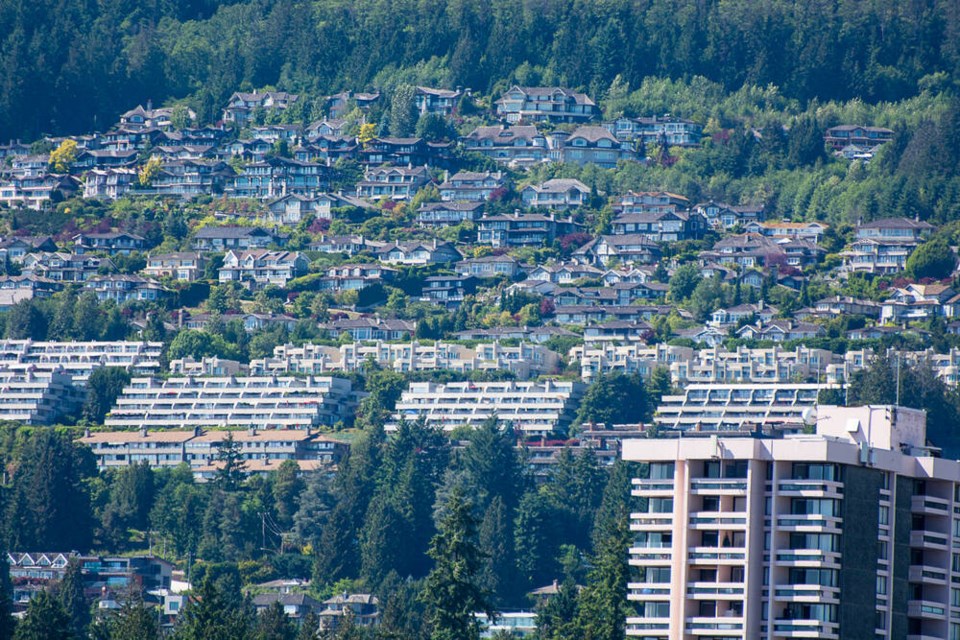It was obvious even before he was premier, even when he was in opposition, that David Eby accorded a sizable part of his wonkish brain to housing policy.
He found complaint after complaint with the BC Liberals’ moves – or non-moves – and could see the objective of home affordability for owners and renters slip-sliding away. Even when the BC NDP were elected, housing challenges weren’t an immediate priority – and the pandemic eventually became the focus.
What West Vancouverites ought to have known, though, once Eby won the BC NDP leadership and had a two-year runway before facing election, was that he’d swiftly apply public finances and policies to support his ideas to increase supply and open doors to development. He signalled that if municipalities weren’t going to densify to meet the demand, his government would assert its constitutional authority to loosen some restrictive zoning in the way.
Few could have predicted the breadth of reforms that would come or so many lingering questions once they were on the table. In the last month, the Eby government has unfurled a five-pack of legislative measures bound to either significantly change West Vancouver or stir a significant challenge to them.
In broad outline these changes are aimed at prompting a greater supply, whether by clamping down on short-term rentals or by stimulating the construction of a less unaffordable (not to be confused with affordable) housing stock. The most vivid and contentious of these moves would see communities rezone single-family territory to make possible up to six units – line up, NIMBYs and YIMBYs.
No question, West Vancouver craves a more diverse mix of rented and owned homes. The district has a history of an often punishingly slow pace of development.
I’ve been told repeatedly by developers they are finding economic conditions – inflation, labour shortages, borrowing rates, and the ever-growing development fees – sufficient to subdue even approved projects. Many developments are stalled, many more are on the drafting table, yet the legislation actually uploads costs on developers – and, before long, the consumers.
The province promises to do all it can to speed municipal permits for developers, and the upfront mass rezoning will help, but nothing can slow something more than the local process. If council and staff are aligned on making a meal of the process, there is nothing the powers in Victoria can do in a timely way to make housing happen. So we will see.
The most disquieting immediate concerns are about the impact that large-scale rezoning will have on land value, in particular whether property owners could now face an assessed tax on the “highest and best use.” To date, Housing Minister Ravi Kahlon and BC Assessments have been less than soothing, suggesting that the so-called “land lift” ought not to be all that high.
Still, you’d think that a policy so long in planning would anticipate a serious problem the industry could spot so quickly. Then, too, is the little matter of the tens, perhaps hundreds of millions in infrastructure to support it locally.
The measures overall are far stronger than the five-year housing targets set out this year for the district and nine other municipalities – the so-called “naughty list.” The directive to West Vancouver was for 1,432 units, mostly studios or one-bedrooms. Some 985 are to be rented, 446 owned. (Don’t blame me if the numbers don’t add up, by the way. It’s in the document.) The economically challenging part: 435 rental units are to be below-market, 39 of them supportive housing. Mind you, below-market means affordable to households with incomes of up to $145,000, so there are no bargains. Considering what is in the pipeline, these targets aren’t difficult to achieve, but much depends on the climate for change at municipal hall.
I had to chuckle at the Nov. 10 provincial news release: “More than 150 affordable rentals underway in West Vancouver.” This suggests instant dividends from swift-afoot governments. It was actually about a project approved by the previous council of the Kiwanis Village West.
Even radical changes take a half-decade to sink in. If we’re already trying to demonstrate results by recycling old news, then I guess the anti-development cohort has little to fear. As for developers….
Kirk LaPointe is publisher and executive editor of Business in Vancouver as well as vice-president, editorial, Glacier Media Group, the North Shore News’ parent company. He is also a West Vancouverite.



